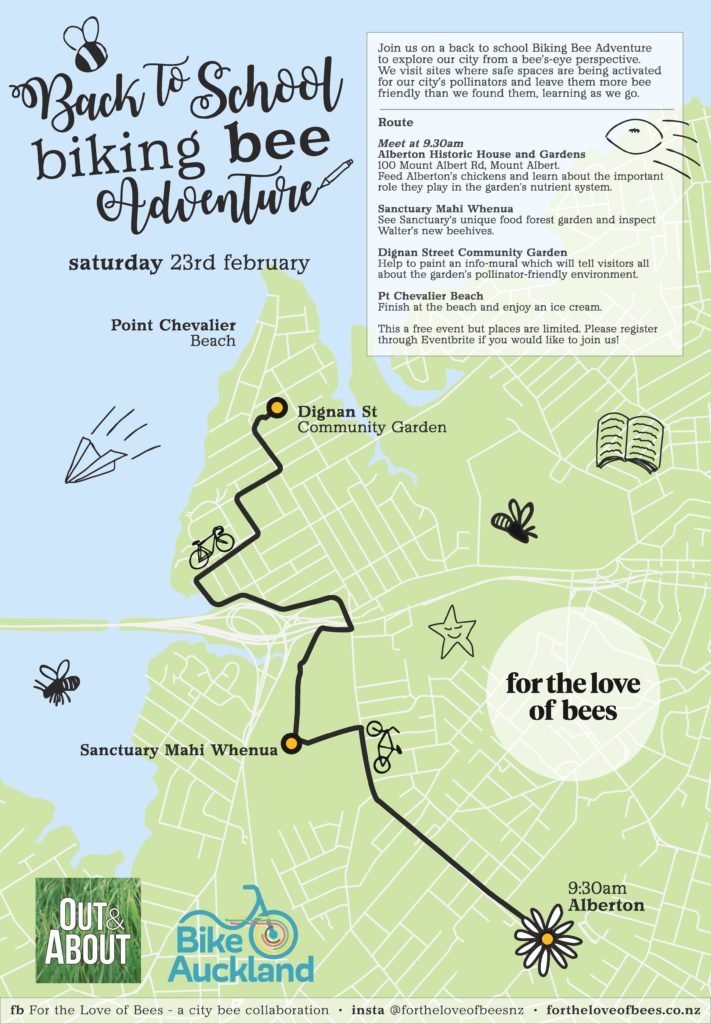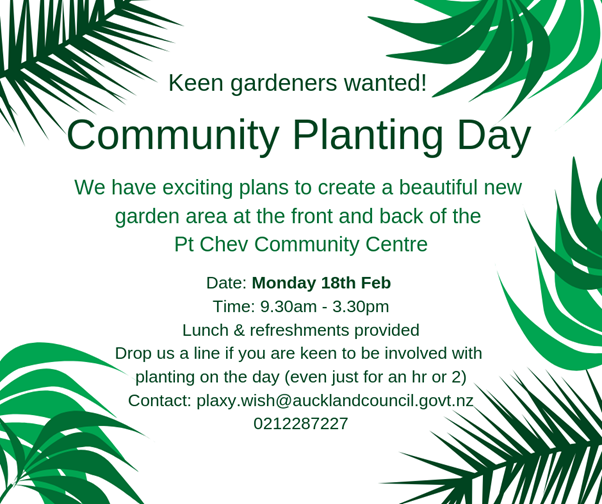The Tamaki Makaurau Extinction Rebellion group is organising a hui of all climate action groups in Auckland. I’m one of the liaison people. We are inviting one or two people from each group. The purpose is to meet, discuss common kaupapa and see where we might join together on upcoming projects/actions. It’s on Sunday 17th March 3pm at Cityside Baptist Church, 7 Mt Eden Road.
Climate Change Ready Urban Activations Invitation
Here is an invite and press release for you to send out to your communities to encourage them to book a place to help us make this day a fantastic celebration of Aucklanders will for innovative regenerative change.
opportunity to learn late summer pruning to increase your yields and structure your trees for production
Here’s an opportunity to learn from the wonderful team from Oak & Thistle, Derek and Julie.
Climate Action Plan
The Climate Action Plan is something TT has talked/emailed each other about a few times…
In case you’ve missed the conversations, Council has had an Ideas Hub website, done in a sort of ‘gaming’ style – where Council poses challenges and questions, and residents answer with ideas. It’s all about canvassing climate solution ideas they can consider in writing the Climate Action Plan.
Some groups, like Generation Zero, managed to get organised five months ago. We’ve talked about it but haven’t got there yet. I’ve just rounded up the Greater Auckland team to put some on a few days ago.
This issue is the reason we exist as a group.
If you think this could be a good way to further the community discussion around the changes needed, how about scrolling through the ideas and voting for what you like? If you’ve got an idea that you can’t find anyone else has suggested, that’d be really good to add in. Tips: you need to set yourself up with a profile before you can vote or add ideas. And in each section, the default setting seems to be “oldest first” – once you’ve read through them, you’ll probably want to reset that to “newest first” so you can see the new ideas.
Biking Bee
There’s a Back-to-school Biking Bee – 23rd February, coming to our community garden!

The event is free but cyclists need to register here: https://www.eventbrite.com/e/back-to-school-biking-bee-tickets-55306023806
Community Planting Day

the huge subsidy to driving
The EU has calculated its subsidy to driving is €500 billion per year.
Also, even at the current low rates of walking and cycling due to unpleasant traffic environments:
“Due to positive health effects, cycling is an external benefit worth €24 billion per year and walking €66 billion per year.”
In NZ, the subsidy to driving per capita will be significantly higher than it is in Europe due to our sprawl and high car dependency.
This information could be useful when you are face-to-face with regressive car dependent people complaining about spending money on cycleways or arguing against the changes to our systems that would boost cycling numbers, such as 30 km/hr speeds. Cycleways give us a return on investment. Roads are what cost too much.
Sewage Contamination in the Sea
Recently Sandi and Heidi had a meeting with a member of the Central City Residents’ Group in order to discuss the Stop Auckland’s Sewage Overflows Coalition (SASOC). As Transition Town Pt Chevalier has members keen to try to stop sewage going into the sea, we thought it was good to learn more about this campaign. There was also some other common ground, which could lead to possibly supporting each other.
- SASOC. It’d be good to be able to put Transition Town Pt Chev’s name to support this cause, but I want to understand fully the cost and technical differences between separating sewage and stormwater, vs building the new interceptor. To this end, I’ve been given a contact name at Watercare and will communicate with them. Hopefully I’ll be able to satisfy myself that the central interceptor is at least as sound a concept as separating the stormwater from the sewerage, in which case I will recommend to TTPC that we support the SASOC campaign. One of the major issues is that the quality of stormwater entering our harbours in the separated systems is highly toxic, due to road runoff, and providing distributed treatment systems is expensive.
- Other ways to prevent stormwater entering the combined system should be implemented. Rainwater tanks that feed laundry, toilet (and perhaps even hot water) are used in Australia. Widespread installation of these tanks throughout the regions that feed the sewerage system would ease the peak stormwater loads, as the drawdown of water in the tanks for these uses means there is capacity for new stormwater, even in the middle of winter. Rainwater tanks that just feed the garden – though good for the garden and lowering the water demand – do not provide this stormwater peak relief for the network.
- Emergency composting toilets. The skillset around establishing and using composting toilets is an important one to develop for resiliency during civil emergencies. As a way of introducing the public to the concept, perhaps Civil Defense could install public composting toilets around the city.
- Parking levies are necessary in Auckland. One of the big costs that the driving mode imposes on society is through the impact of parking spaces. Carparks in the suburbs spread amenities apart, turning a walkable environment into one with long distances that are easier to drive. They contribute to road runoff issues. They are a poor use of space in the central city where 57,000 people live, and which is the densest residential area in the country – all the ground level carparks there should be plazas or parks for residents and visitors to use. And worst of all, they induce driving. If Auckland introduced parking levies at the level that Sydney has them, there would be $137.5 million of revenue per year – although this would drop as landowners shift the carparks to better uses.
- Intensification is a tool for assisting a more compact, people-friendly urban form.
Council and Climate Change
Auckland Council is currently taking public feedback about what should be in the climate action plan strategy.
This isn’t a formal submission process; it looks like you can vote on other people’s ideas, and suggest your own.
And on the same topic, you may be interested in reading my article published today on something Council should be doing, tomorrow:
good articles on carbon emissions reductions from better transport planning
A couple of good articles showing that we are right to push for cycleways and better walking amenity as an important way to reduce carbon emissions. Transport carbon emissions are big, and the easiest thing to target while also improving our lifestyle and health.
Simon Wilson:
https://www.nzherald.co.nz/nz/news/article.cfm?c_id=1&objectid=12172563
Forbes:
